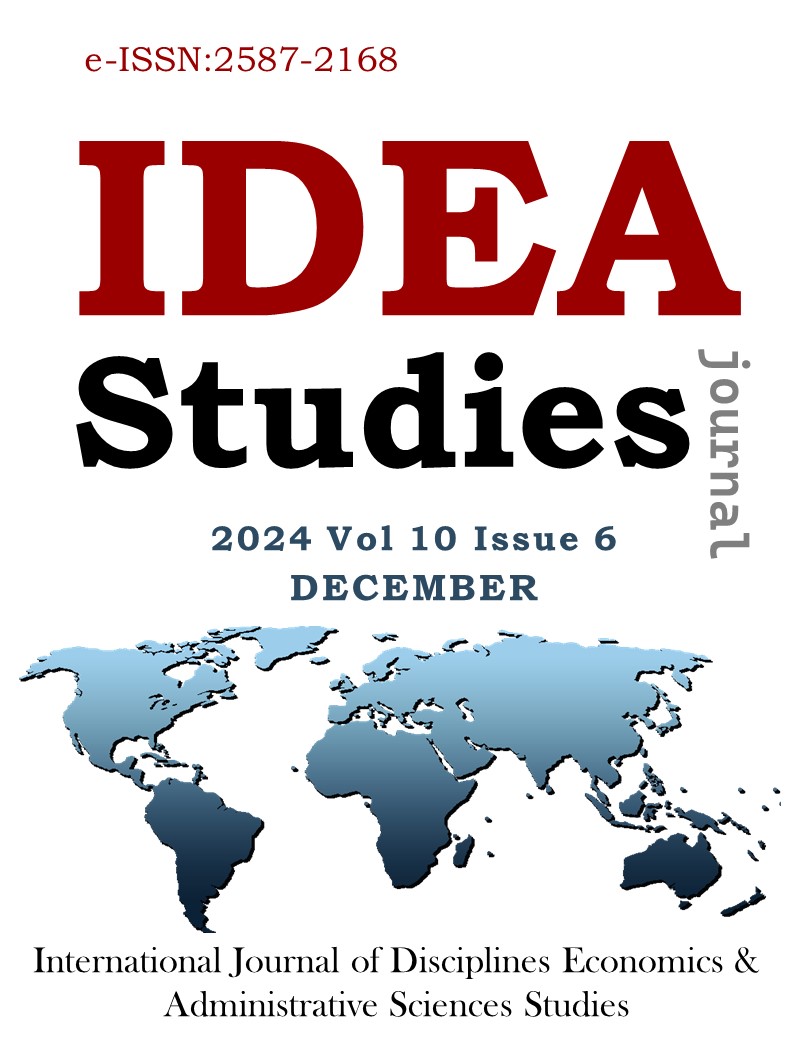Author :
Abstract
Günümüz dünyasında nakit ile yapılan işlemlerden nakitsiz işlemlere hızla geçildiği görülmektedir. Nakitsiz toplum olarak da değerlendirilen bu durumda fiziki olarak para taşımadan plastik kartlar ile işlem yapma kolaylığı sunmakta, sonucunda ise maliyetlerin azalmasından dolaşımdaki para miktarının kayıt altına alınmasına kadar birçok faktöre etki etmektedir. Bu nedenle kademeli olarak nakitsiz bir ekonomiye geçiş sürecinin ekonomik büyüme üzerindeki etkisinin araştırılması, ekonomik aktörler açısında önem teşkil etmektedir. Dolayısıyla bu çalışmada, nakitsiz ödeme araçları kullanımının Türkiye’ de ekonomik büyüme üzerindeki etkisi incelenmiştir. Çalışmanın çıkış noktası elektronik kart ödemelerinin dünya ekonomik büyümesi üzerinde anlamlı bir etkisinin olduğu üzerine yapılan tartışmalardır. Diğer yandan nakitsiz ödemenin benimsenmesinin bir ekonomiyi nasıl etkileyebileceğine dair kesin bir kanıt olmamakla beraber ülkenin söz konusu dijital sürece uyum sağlaması önem arz etmektedir. Yine çalışmada, Türkiye için nakitsiz ödemenin 2014Q1-2023Q4 dönemleri arasında artan kullanımının ekonomik büyüme üzerindeki avantaj ve dezavantajlarını tespit etmek amaçlanmaktadır. Bu bağlamda nakitsiz toplumu temsilen kullanılan değişkenler, kredi kartı-banka kartı, internetten yapılan kartlı ödemeler, mektup/telefon ile yapılan kartlı ödemeler ve ekonomik büyümeyi temsilen GSYİH verileri kullanılmıştır. Dönüşen nakitsiz toplumun büyümedeki payını ölçmek üzere verilerin durağanlık sonucuna bağlı olarak Johansen eş bütünleşme ve Granger nedensellik testleri uygulanmıştır. Çalışma sonucunda değişkenler arasında eş bütünleşme ilişkisi ve nedensellik ilişkisi saptanmış, Türkiye’ de nakitsiz ödemelerin, ekonomik büyümeyi arttırıcı bir etki yarattığı bulunmuştur.
Keywords
Abstract
In today's world, there is a rapid transition from cash transactions to cashless transactions. In this situation, which is also considered a cashless society, it offers the convenience of making transactions with plastic cards without physically carrying money, and as a result, it affects many factors from reducing costs to recording the amount of money in circulation. Therefore, economic actors need to investigate the impact of a gradual transition to a cashless economy on economic growth. Thus, this study examines the impact of the use of cashless payment instruments on economic growth in Turkey. The starting point of the study is the debate on the significant impact of electronic card payments on world economic growth. On the other hand, although there is no conclusive evidence on how the adoption of cashless payment can affect an economy, it is important for the country to adapt to this digital process. Again, the study aims to identify the advantages and disadvantages of the increasing use of cashless payment for Turkey between 2014Q1-2023Q4 on economic growth. In this context, the variables used to represent the cashless society are credit and debit cards, card payments made online, card payments made by letter/phone, and GDP data representing economic growth. In this context, Johansen cointegration and Granger causality tests are applied depending on the stationarity of the data to measure the share of the transforming cashless society in growth with credit card-debit card, card payments made via the internet, card payments made via letter/phone and GDP data. The starting point of the study is the debate on the significant impact of electronic card payments on world economic growth. On the other hand, although there is no conclusive evidence on how the adoption of cashless payment can affect an economy, the country needs to adapt to this digital process. As a result of the study, it was found that cashless payments have a positive impact on economic growth in Turkey.





